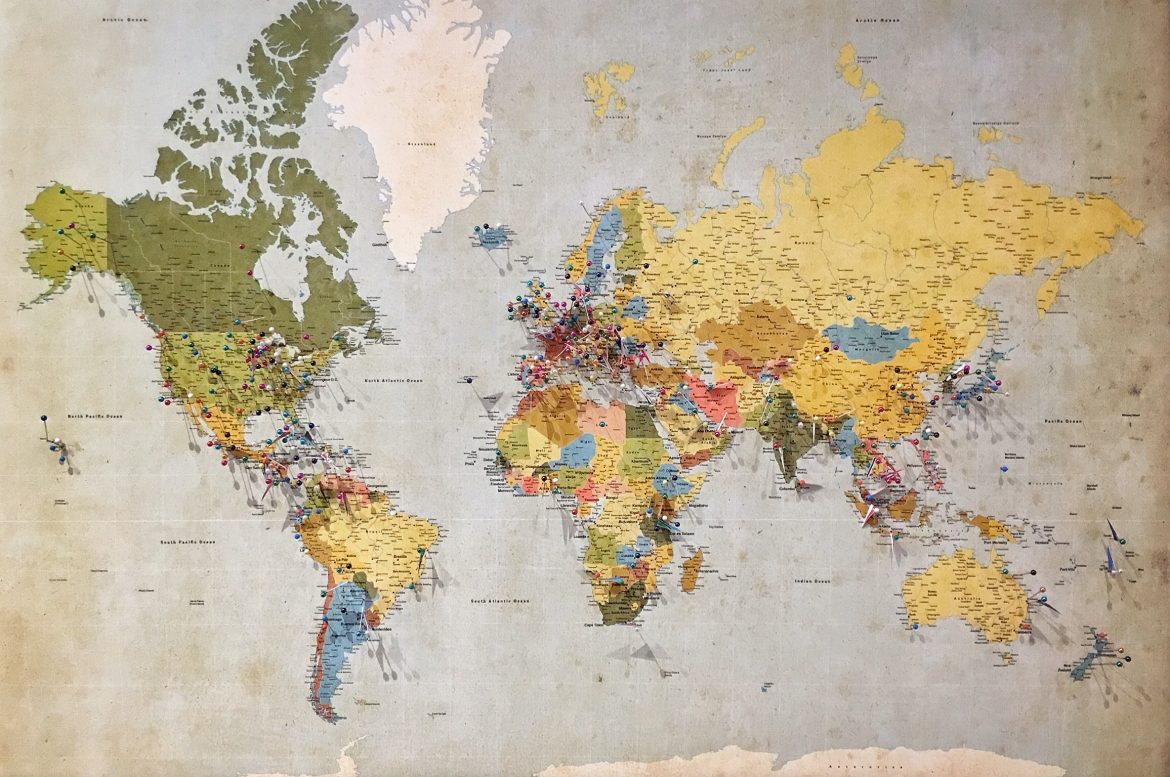
Reconsidering an “Unfriendly” Question

Reconsidering an “Unfriendly” Question
By: claycormany in Life in General
The scenario usually unfolds this way. A Caucasian man or woman — standing in line at a grocery store, coffee shop, or fast-food outlet — confronts another customer or maybe even the clerk behind the counter, who’s been speaking with a noticeable accent. The Caucasian fires off the question as if it were a bullet coming out of a gun: Where are you from? The question carries an unmistakable, if unstated, meaning: Wherever you’re from, you ought to go back there, because you don’t belong here. Given everything the Trump Administration did to make life difficult for foreign-born people living in America, it’s not surprising the question “Where are you from?” carries such negative connotations. But maybe it’s time to give this question a second chance. Put it in a different context and speak it with a tone of curiosity rather than suspicion, and it can be a valuable tool for opening doors and building bridges.
I offer my own experience as a case-in-point. As an English instructor and a public-speaking tutor, I have asked many of my students “Where are you from?” I ask the question with interest and curiosity and with this clear, if unspoken, message: I would like to know where you’re from because I think your life experiences could teach me something of value. The answers I’ve gotten to the question have led to dialogues that have opened my eyes to different realities I would never have otherwise known. For example, I have
- learned what it’s like to live in an African refugee camp and have to travel four miles round-trip each day to bring a cask of water back to your family.
- heard about the confusion and chaos one experiences going through a Chinese “wet” market during the early morning hours.
- learned about the fear and helplessness Palestinian young people feel when passing through an Israeli military checkpoint.
- learned what it’s like to set foot in a large American city without knowing anyone there and with almost no ability to speak or understand English.
- discovered what it was like to be caught up in the Rwandan civil war of the early 1990s.
- received some insight to the economic challenges a foreign-born family faces when transplanting itself in the United States.
I should add that the question of Where are you from? can yield equally interesting answers when asked of students born and raised in the U.S. It’s given me insights to what it’s like to be homeless, how it feels to save someone’s life as a first-responder, and how difficult it is to succeed in college when so many people are telling you that you’re sure to fail. In short, the question of Where are you from? is one that makes me realize that I learn as much from my students as they learn from me — maybe even more,
So with the Trump Administration fading into the past, let’s give the question of Where are you from? a second chance. Let’s pull it up, dust if off, and give it a new set of clothes. And let’s give it a new attitude, too. Instead of asking it as a challenge, let it be asked with the hope of learning something of worth. Instead of building a wall, let it open a pathway to understanding and empathy.
Tags: foreign, learn, question, student, Trump

Great question! I have learnt that several of the cashiers at Meijers on sawmill Road in Dublin Ohio are actually well educated foreigners who either did not qualify for or could not find jobs in their home profession. A couple seem understandably upset and angry at their newfound positions whereas a few others are happy to be living in the United States with the opportunities before them. I imagine it would be difficult to have been an engineer in India and to find yourself relegated to a cashier in another country. It reminds me we are all going through some thing and to be kind no matter what.
Thank you for the article!
I’m sure lots of immigrants, working in places like Meijers, Walmart, or Target, are far more skilled than we might imagine. Thanks for sharing, Shawn.
Clay, interesting and true observations. Here in France, I’m quick to say I’m American, especially with a bit of tension between the French and the Brits because of Brexit. The guard at the French prefecture welcomed us with open arms when he learned we were American
Paulita, Thanks for that insight. It hadn’t occurred to me that Britain’s departure from the European Union might cause hard feelings between British and French citizens. I would imagine that travel restrictions brought on by COVID haven’t helped either.
I love this! I get to meet so many interesting people from all over the world at work. Before COVID I was able to talk to parents while their kids were in class.
Brazilian cattle rancher
Cuban refugee who came to US on a raft
Pro football player
Learned how to make a Caipiranha
Many cultures like to barter even here:)
I never wanted to go to Japan until this job, nicest people in the world.
When you go to some Chinese restaurants there is an American menu and a Chinese menu.
What the Ukraine is really like.
What it’s like to be Ex Amish
Looking forward to the parents being back in the building.
So much easier than being angry.
It’s a Small World after all!
Wow, Sue! You prove my point to perfection. Like you, I’m looking forward to interacting with students face-to-face on campus again rather than online. Thanks for your comment.